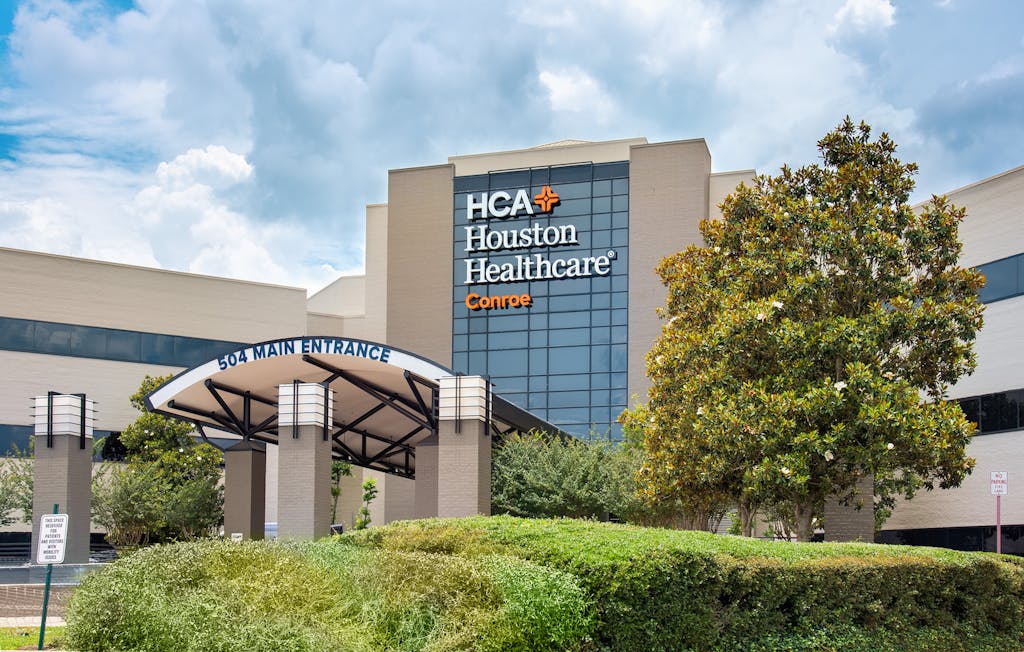After several nightmarish months of hospitalizations and deaths caused by the highly contagious delta variant, Dr. Tricia Punsalan welcomes a recent downturn in cases at HCA Houston Healthcare Conroe where she works.
But as numbers trend in the right direction, the family medicine physician warns now is not the time to drop your guard. With the omicron variant looming and families preparing to spend more time together for the holiday season, any progress could plateau if vaccination numbers don’t improve and people don’t stick to precautions, she says.
“This is exactly what happened in 2020. People grew tired of social distancing, so the original strain of COVID-19 mutated into what we now call the delta variant,” says Dr. Punsalan. “Even with a little more than half of the nation vaccinated, there is still a large percentage of the population that can still be a Petri dish for the coronavirus to infect others and create mutant strains.”
The large number of infections caused by recent strains have come at a high cost. In the U.S., the death toll has reached more than 750,000, which is far greater than any country in the world. Montgomery County, where HCA Houston Healthcare Conroe is located, accounts for more than 1,000 of those deaths.
The figures are frustrating for healthcare workers such as Dr. Punsalan, especially when so many remain resistant to get a vaccine that is overwhelmingly proven to prevent deaths, hospitalizations, and serious illness.
“In the past six months, among the hundreds of patients I have cared for, many have not made it out of here alive,” says Dr. Punsalan. “With the vaccine now readily available, dying from COVID-19 is largely preventable and unnecessary at this point in time given the development of our vaccines.”

Relieving Clogged Emergency Rooms
As with most hospitals across the state, a majority of COVID-19 patients that were hospitalized at HCA Houston Healthcare Conroe during the peak of the delta variant were unvaccinated. While not all patients faced an untimely death, they did contribute to an overcrowded emergency room.
It’s something Punsalan and other healthcare workers do not want repeated.
“COVID-19 patients may need several days to weeks or months for hospitalized care. So, we cannot always discharge patients as quickly from the hospital as we might for a routine procedure, for example,” explains Dr. Punsalan. “Capacity is consistently strained on the medical floors and ICU, which makes it difficult to accommodate the influx of patient needs.”
Most importantly, when intensive care unit beds become scarce because of an influx of patients, those with critical conditions unrelated to COVID-19, such as stroke, heart attacks, and trauma, are forced to wait on life-saving treatment. It can also significantly impact EMS service, Dr. Punsalan further explains. That’s because EMS crews may need to wait for longer periods of time to transfer patients to emergency room staff when they would otherwise be back out in the field helping others.
Getting vaccinated, keeping a mask handy, and social distancing remain the best ways to help alleviate overcrowding issues at local hospitals. Health officials also say now is the time to be smart about when it is and isn’t appropriate to visit the ER. If you want to be tested for COVID-19, either because of potential exposure, display of mild symptoms, or as precaution for upcoming holiday travel and events, CareNow Urgent Care—part of the HCA Houston Healthcare family of hospitals—is the better choice.
“The impact of a surge on local ERs results in longer wait times, ER boarding—which is the practice of holding a patient until a hospital bed is available—and delays in care for regular ER complaints,” reaffirms Dr. Eric Ardeel, an emergency medicine physician at HCA Houston Healthcare Conroe. “The ER and hospital are a finite resource and any additional tax on that resource by definition subtracts from care elsewhere.”
If you or a loved one are experiencing more serious symptoms like difficulty breathing, chest pain, or new confusion, which could indicate low oxygen, seizure, or a stroke, visit your local ER or call 9-1-1.






